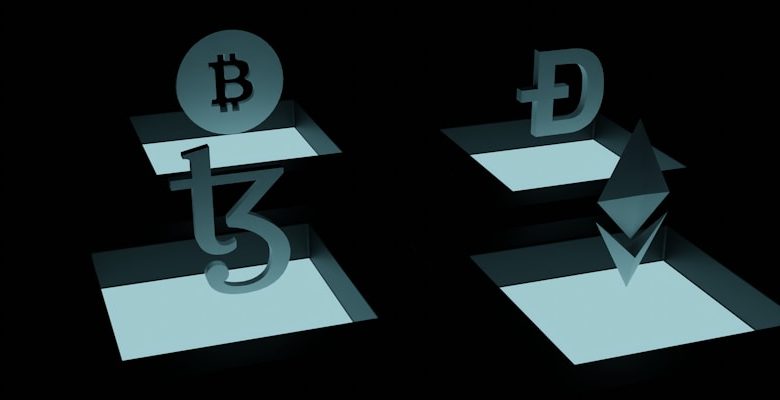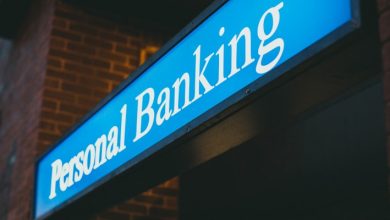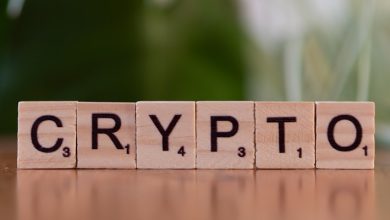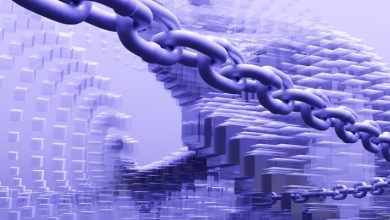The Future of Blockchain Governance: DAOs and Beyond

- Understanding Decentralized Autonomous Organizations (DAOs)
- Challenges and Opportunities in Blockchain Governance
- Exploring the Evolution of Governance Models in Blockchain
- The Role of Smart Contracts in Decentralized Governance
- Governance Tokens: Power and Influence in DAOs
- Regulatory Implications of Decentralized Governance in Blockchain
Understanding Decentralized Autonomous Organizations (DAOs)
Decentralized Autonomous Organizations, or DAOs, are an innovative way to organize and govern collective decision-making processes using blockchain technology. DAOs operate without the need for a central authority, relying instead on smart contracts and code to automate decision-making and governance. This decentralized approach allows for greater transparency, security, and efficiency in decision-making processes compared to traditional centralized organizations.
In a DAO, members can vote on proposals and make decisions based on their stake or voting power within the organization. This democratic governance structure ensures that decisions are made collectively and fairly, without the need for intermediaries or middlemen. By leveraging blockchain technology, DAOs can execute transactions and enforce rules automatically, reducing the risk of fraud or manipulation.
One of the key advantages of DAOs is their ability to operate globally, with members from around the world participating in decision-making processes. This global reach allows for a diverse range of perspectives and expertise to be brought to the table, leading to more informed and robust decision-making. Additionally, DAOs can operate 24/7, allowing for faster decision-making processes and increased efficiency.
As DAOs continue to evolve and gain popularity, they have the potential to revolutionize traditional governance structures across various industries. By providing a secure and transparent way to organize and govern collective decision-making processes, DAOs can empower individuals and communities to take control of their own destinies and shape the future of governance.
Challenges and Opportunities in Blockchain Governance
Blockchain governance presents both challenges and opportunities for decentralized autonomous organizations (DAOs) and the broader ecosystem. One of the main challenges is achieving consensus among stakeholders on decision-making processes and protocol upgrades. This can be particularly challenging in large networks with diverse interests and incentives. However, by implementing transparent and inclusive governance mechanisms, DAOs can foster trust and participation among their community members.
Another challenge is the potential for malicious actors to exploit vulnerabilities in the governance system for personal gain. This highlights the importance of robust security measures and smart contract auditing to mitigate risks and protect the integrity of the network. Additionally, regulatory uncertainty poses a significant challenge for blockchain governance, as DAOs navigate a complex legal landscape and strive for compliance with evolving regulations.
Despite these challenges, blockchain governance also presents exciting opportunities for innovation and collaboration. By leveraging blockchain technology, DAOs can streamline decision-making processes, automate governance functions, and enhance transparency and accountability. Smart contracts enable self-executing agreements that can enforce rules and facilitate transactions without the need for intermediaries, revolutionizing the way organizations operate.
Furthermore, blockchain governance allows for the creation of global, borderless communities that transcend traditional boundaries and enable individuals to participate in decentralized networks from anywhere in the world. This opens up new possibilities for collective action, coordination, and value creation, empowering individuals to take ownership of their digital assets and participate in governance decisions that impact their interests.
Exploring the Evolution of Governance Models in Blockchain
Blockchain governance models have undergone significant evolution in recent years, with the rise of Decentralized Autonomous Organizations (DAOs) representing a major shift in how decisions are made within blockchain networks. DAOs leverage smart contracts to automate governance processes, enabling stakeholders to vote on proposals and execute decisions without the need for centralized authority.
One key advantage of DAOs is their ability to promote transparency and reduce the potential for corruption or manipulation. By operating on a decentralized basis, DAOs aim to create a more equitable and inclusive decision-making process that empowers all network participants. This shift towards more democratic governance structures is seen as a positive step towards ensuring the long-term sustainability and resilience of blockchain networks.
As blockchain technology continues to mature, new governance models are likely to emerge that further enhance the efficiency and effectiveness of decentralized decision-making. Some experts predict that hybrid models combining elements of both centralized and decentralized governance will become increasingly common, allowing for more flexibility and adaptability in how blockchain networks are managed.
Overall, the evolution of governance models in blockchain reflects a broader trend towards greater decentralization and democratization of power. By embracing innovative approaches such as DAOs, blockchain networks can better align incentives, improve accountability, and foster trust among participants. As the technology continues to evolve, it will be fascinating to see how governance models continue to adapt and innovate to meet the needs of an ever-changing digital landscape.
The Role of Smart Contracts in Decentralized Governance
Smart contracts play a crucial role in decentralized governance within the blockchain ecosystem. These self-executing contracts are written in code and automatically enforce the terms of an agreement when predefined conditions are met. By utilizing smart contracts, decentralized autonomous organizations (DAOs) can operate without the need for intermediaries or centralized control.
One of the key advantages of smart contracts in decentralized governance is their transparency and immutability. Once a smart contract is deployed on the blockchain, its code cannot be altered, providing a high level of security and trust in the governance process. This ensures that all transactions and decisions within the DAO are executed as intended, without the risk of manipulation or tampering.
Furthermore, smart contracts enable the automation of governance processes, reducing the need for manual intervention and streamlining decision-making within DAOs. Through the use of smart contracts, voting mechanisms, fund allocation, and other governance functions can be executed efficiently and transparently, ensuring the integrity of the decentralized governance system.
In addition, smart contracts can also help to enhance accountability and compliance within DAOs. Because smart contracts are executed automatically based on predefined rules, all actions taken within the governance framework are recorded on the blockchain for transparency and auditability. This not only fosters trust among participants but also ensures that the DAO operates in accordance with its established rules and regulations.
Overall, the role of smart contracts in decentralized governance is pivotal in creating a secure, transparent, and efficient decision-making process within DAOs. By leveraging the power of smart contracts, decentralized organizations can revolutionize traditional governance structures and pave the way for a more inclusive and democratic future in the blockchain space.
Governance Tokens: Power and Influence in DAOs
Governance tokens play a crucial role in decentralized autonomous organizations (DAOs), granting holders power and influence over decision-making processes within the network. These tokens represent ownership and voting rights, allowing token holders to participate in governance proposals, vote on key issues, and shape the direction of the organization.
By holding governance tokens, individuals can have a say in matters such as protocol upgrades, funding allocations, and strategic partnerships. The more tokens a person holds, the more voting power they have, giving them greater influence over the decisions made within the DAO. This system helps ensure that stakeholders who are most invested in the organization have a significant voice in its governance.
Governance tokens are often distributed through token sales, airdrops, or earned through participation in the DAO ecosystem. They are essential for aligning incentives among network participants and promoting active engagement in governance processes. By giving token holders a stake in the success of the organization, governance tokens encourage them to act in the best interests of the network as a whole.
Regulatory Implications of Decentralized Governance in Blockchain
Decentralized governance in blockchain has significant regulatory implications that need to be considered as this technology continues to evolve. One of the key challenges is determining how traditional regulatory frameworks can adapt to the decentralized nature of blockchain governance. Regulators are grappling with issues such as jurisdictional boundaries, enforcement mechanisms, and accountability in a decentralized environment.
One of the main concerns is how to ensure compliance with existing regulations when transactions are executed autonomously through smart contracts. Regulators are also concerned about the potential for money laundering, fraud, and other illicit activities facilitated by decentralized governance structures. As a result, there is a growing need for new regulatory approaches that balance innovation and consumer protection.
Regulators are increasingly recognizing the need to engage with blockchain projects and decentralized autonomous organizations (DAOs) to better understand their operations and impact on the broader financial system. By working closely with industry stakeholders, regulators can develop more effective regulatory frameworks that promote innovation while mitigating risks.
Overall, the regulatory implications of decentralized governance in blockchain are complex and multifaceted. It will require a collaborative effort between regulators, industry participants, and other stakeholders to strike the right balance between fostering innovation and protecting consumers and the integrity of the financial system.



